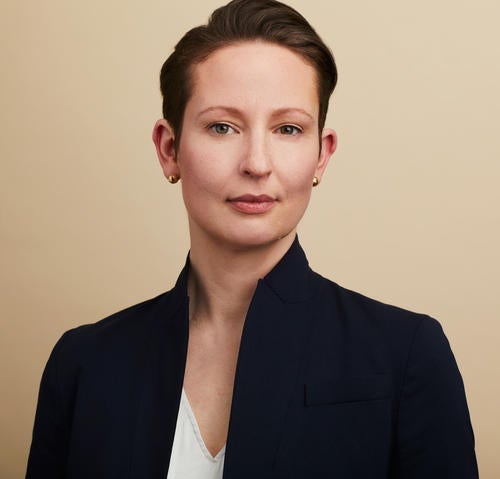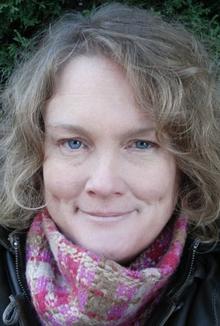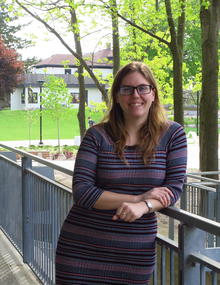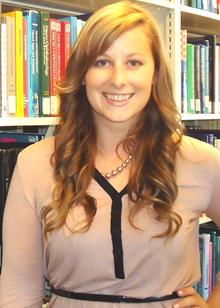The Open Scholarship Committee brings you Open Access Day - a day-long conference of speakers and workshops discussing the various methods, benefits and challenges of Open Access, and the services and resources available to scholars across the university.
This event is free, and participants may attend all or some of the sessions. Registration is required.
Open Access Day schedule:
| Time | Description |
|---|---|
| 9:10 a.m. to 10:25 a.m. |
Keynote: Challenging the digital consensus - The Open Data and Open Access endgame After decades of investment in a movement of openness by a range of stakeholders and actors, where is the idea of openness helping and where might it be hurting progress and equity and democracy? How will the role of the government change as this movement evolves? Should it? What about civil society institutions and professional bodies? Open as a normative good has been challenged by many. With entrenched digital power structures and disparities it's time for the open movement to consider progress and challenges to date, and to redefine the open movement's endgame. |
| 10:30 a.m. to 11:15 a.m. |
Arctic and Inuit communities: The meaning and practice of 'Open' and 'Equity' Since the late 1990’s, CCIN has maintained an outreach and education website of cryospheric information for the public. In response to increasing demand for proper stewardship of valuable research datasets and information, CCIN and partners came together in the mid-2000’s to develop a more sophisticated online presence and database to serve Canada’s northern research community. The resulting database, the PDC, began as a metadata discovery portal to facilitate exchange of information about Canada’s Arctic and the Antarctic among researchers, northern Canadians, and other user groups. Since its online launch in 2007, the PDC has become Canada’s primary on-line source for data and information on research and monitoring in the polar regions. CCIN’s main objectives are to:
Open and Equity in the context of Inuit communities and Arctic research is very important for CCIN/PDC, as can be seen in our objectives. We value the FAIR principles as a best practice, ensuring data and information on our catalogue is findable, accessible, interoperable, and reusable. These four tenants of OA are at the core of equity, and we work every day to ensure that this is undertaken with pride, precision, and patience with our research partners. In this session, I will be discussing both historic and current challenges and issues, as well as solutions that are being implemented and considered, in partnership with Inuit communities and regional and federal representatives. Additionally, Indigenous Knowledge is important in the context of this session, and the development of locally created Atlases have been key in open and equity on the communities’ terms. |
| 11:15 a.m. to 12:15 p.m. |
Free? Open? Commercial? Trying to find balance in the Faculty of Mathematics The Faculty of Mathematics has prepared digital assets that are used by thousands of degree enrolled students and hundreds of thousands of students, teachers and parents in outreach programs. There has been lots of interest expressed by others to adopt, adapt and distribute these interactive assets. Given the expense in preparing, deploying and maintaining these digital assets, the Faculty must now consider how it wishes to continue to support the evolution of course content. |
| 12: 15 p.m. to 1:15 p.m. |
Lunch Registration required. In room DC 1301. Generously co-sponsored by the Centre for Teaching Excellence (CTE) and the Centre for Extended Learning (CEL). |
| 1:15 p.m. to 1:45 p.m. |
Creative Commons Thinking of making some of your work available for others to use for certain reasons without having to ask your permission? This session will help you choose and use a Creative Commons license. |
| 1:45 p.m. to 2:45 p.m. |
Tri-Agency Open Access Policy: From author rights to UWSpace Lauren Byl, Rebecca Hutchinson and Will Roy This workshop will review the Tri-agency (CIHR, NSERC & SSHRC) Open Access policy on publications, which applies to all NSERC or SSHRC grants awarded on or after May 1, 2015, and CIHR grants awarded on or after January 1, 2008. The session will cover:
Waterloo researchers who have received grant funding or have an interest in making their research Open Access are encouraged to attend. |
| 2:45 p.m. to 3:30 p.m. |
Primer on predatory publishing This session will provide an introduction to the basics of the issue of predatory publishing. Participants will understand what predatory publishing is, and gain a few tips on how to spot a predatory journal or publisher. |
| 3:30 p.m. to 4:30 p.m. |
Open Education initiatives in Ontario James Skidmore will bring us up to speed on the state of Open Education in Ontario. Skid is currently an Open Education Fellow with eCampusOntario (ecampusontario.ca), a provincially-funded centre of excellence in online and technology enabled learning for higher education. After explaining the various ways eCampusOntario facilitates open education, Skid will look more closely at the obstacles facing open education, and introduce some ideas that he has been working on to address those issues. He will also introduce his own project, Open German Studies, which can serve as one model for increasing open education in the humanities. |
The Open Scholarship Committee is comprised of representatives from the Library, Centre for Extended Learning (CEL), Centre for Teaching Excellence (CTE), Retail Services (now Print + Retail Solutions), Federation of Students (FEDS), and James Skidmore.
Open Access Day speakers:
Keynote speaker: Bianca Wylie

Bianca is an open government advocate with a dual background in technology and public engagement. She is a Senior Fellow at the Centre for International Governance Innovation in the Global Economy program and is the co-founder of Tech Reset Canada, a group that advocates for maximizing public good in the innovation economy.
She worked for several years in the tech sector in operations, infrastructure, corporate training, and product management, most recently at Thomson Reuters. As a facilitator at Swerhun Inc., she designed, delivered and supported public consultation processes for various governments and government agencies.
In 2014, Bianca founded the Open Data Institute Toronto. In 2016 she co-founded Civic Tech Toronto. She is a columnist, guest lecturer, and speaker on open government and public sector technology policy. She is also a member of the Toronto Public Library's Innovation Council.



Dr. Steven Furino was the inaugural author and instructor in the fabulously successful Master’s of Mathematics for Teachers program directed by the Centre for Education in Mathematics and Computing and founded by Dr. Brian Forrest. Dr. Furino is a winner of the University’s Distinguished Teacher Award and is currently the Assistant Dean for Online Studies in the Faculty of Mathematics.

Chantel Ridsdale is Project and Outreach Coordinator for the Canadian Cryospheric Information Network/Polar Data Catalogue (CCIN/PDC). Chantel graduated from Dalhousie University with a Masters of Library and Information Studies (MLIS) in 2016 and has been involved with data management ever since, with experiences primarily with federal not-for-profit organizations: Research Data Canada, Leadership Council for Digital Research Infrastructure, and now CCIN/PDC. Chantel’s broad experiences with policy and best practices provides a novel outlook for Data Management (DM) and Open Access (OA) in Canada.

James Skidmore is a faculty member at the University of Waterloo and Director of the Waterloo Centre for German Studies, a research institute at the University. His teaching centres on general and cultural studies, and he recently won a national award for innovation in online teaching.